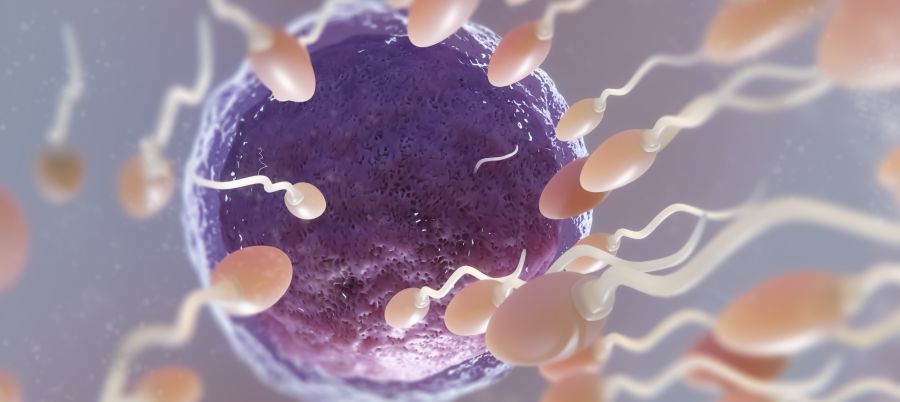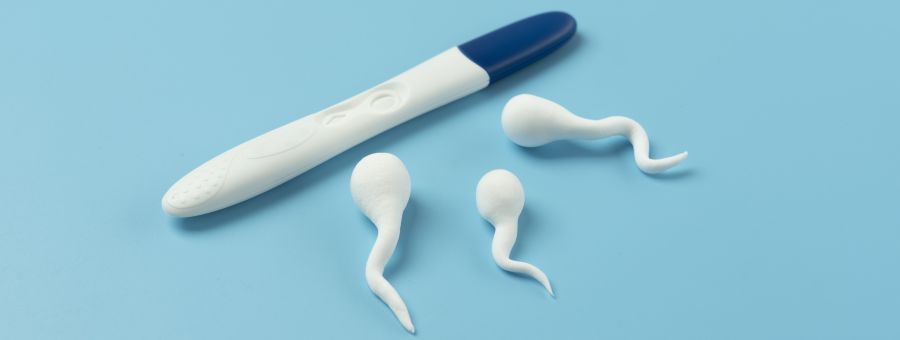If you're concerned about sperm quality and its impact on your fertility journey, you're not alone. Poor sperm quality affects approximately 40% of couples struggling with infertility, but the good news is that many factors influencing sperm health are within your control. These 12 evidence-based strategies can help you optimize your sperm quality and improve your chances of conception.
Understanding Sperm Quality: What You Need to Know
Before diving into improvement strategies, it's important to understand what constitutes healthy sperm. Sperm quality is evaluated based on three main parameters: concentration (count), motility (movement), and morphology (shape). According to the World Health Organization, normal sperm parameters include a concentration of at least 15 million sperm per milliliter, with 40% showing progressive motility and 4% having normal morphology.
Dr. Sarah Johnson, a leading reproductive endocrinologist, explains: "Sperm quality can fluctuate significantly based on lifestyle factors, and the good news is that sperm regeneration occurs every 74 days, meaning positive changes can show results relatively quickly" (Johnson, 2023).
| Sperm Parameter | Normal Range | Impact on Fertility |
|---|---|---|
| Concentration | ≥15 million/mL | Higher counts increase conception chances |
| Total Motility | ≥40% | Movement essential for reaching egg |
| Progressive Motility | ≥32% | Forward movement crucial for fertilization |
| Normal Morphology | ≥4% | Proper shape affects egg penetration |
Strategy 1: Optimize Your Diet for Sperm Health
Your diet plays a crucial role in sperm production and quality. Research shows that men following a Mediterranean-style diet have significantly better sperm parameters compared to those consuming processed foods regularly.
| Beneficial Foods | Key Nutrients | Sperm Benefits |
|---|---|---|
| Walnuts, salmon, sardines | Omega-3 fatty acids | Improved motility and morphology |
| Tomatoes, watermelon | Lycopene | Reduced DNA damage |
| Dark leafy greens | Folate | Enhanced sperm concentration |
| Pumpkin seeds, oysters | Zinc | Increased testosterone and count |
| Citrus fruits, berries | Vitamin C | Antioxidant protection |
Focus on incorporating these fertility-boosting foods into your daily meals while limiting processed foods, excessive sugar, and trans fats that can negatively impact sperm health.
Strategy 2: Maintain a Healthy Weight
Being overweight or underweight can significantly affect sperm quality. Studies indicate that men with a BMI over 25 often experience decreased sperm concentration and motility. Excess weight can lead to hormonal imbalances, increased scrotal temperature, and oxidative stress.
The ideal BMI range for optimal fertility is between 20-25. If you need to lose weight, aim for gradual, sustainable changes rather than extreme dieting, which can actually harm sperm production.
Strategy 3: Exercise Regularly (But Don't Overdo It)
Regular moderate exercise can boost testosterone levels and improve sperm quality. However, excessive high-intensity training can have the opposite effect by increasing oxidative stress and reducing testosterone.
| Exercise Type | Frequency | Benefits for Sperm |
|---|---|---|
| Moderate cardio | 30 minutes, 5x/week | Improved circulation and hormone balance |
| Strength training | 2-3x/week | Increased testosterone production |
| Yoga/stretching | Daily | Stress reduction and flexibility |
| Swimming | 2-3x/week | Low-impact cardiovascular benefits |
Avoid excessive cycling or activities that put prolonged pressure on the perineum, as these can affect blood flow to the reproductive organs.
Strategy 4: Manage Stress Effectively
Chronic stress significantly impacts sperm quality by elevating cortisol levels, which can suppress testosterone production and increase oxidative stress. Research shows that men with high stress levels have lower sperm concentration and motility.
Effective stress management techniques include meditation, deep breathing exercises, regular physical activity, and maintaining work-life balance. Consider speaking with a counselor if stress feels overwhelming, as emotional support during fertility challenges is crucial for both partners.
Strategy 5: Get Quality Sleep
Sleep quality directly affects hormone production, including testosterone. Men who sleep less than 6 hours per night or more than 9 hours show decreased sperm quality compared to those getting 7-8 hours of quality sleep.
Poor sleep patterns can disrupt your circadian rhythm, affecting the hypothalamic-pituitary-gonadal axis responsible for reproductive hormone regulation. Establish a consistent sleep schedule and create a sleep-friendly environment for optimal sleep quality and fertility.
Strategy 6: Avoid Heat Exposure
Sperm production requires a temperature about 2-3 degrees lower than body temperature, which is why the testicles are positioned outside the body. Excessive heat exposure can temporarily reduce sperm production and quality.
| Heat Source | Impact | Recommendation |
|---|---|---|
| Hot baths/saunas | Temporary sperm reduction | Limit to 15 minutes, avoid daily use |
| Tight clothing | Increased scrotal temperature | Wear loose, breathable underwear |
| Laptop on lap | Direct heat exposure | Use desk or cooling pad |
| Heated car seats | Prolonged heat exposure | Use ventilation, take breaks |
Strategy 7: Quit Smoking and Limit Alcohol
Smoking is one of the most damaging habits for sperm health. It reduces sperm count, motility, and increases DNA fragmentation. The good news is that quitting smoking can lead to improvements in sperm quality within 2-3 months.
Alcohol consumption should be limited to moderate levels. While occasional drinking may not significantly impact fertility, regular heavy drinking can reduce testosterone levels and impair sperm production. The impact of smoking on fertility extends beyond just sperm quality, affecting overall reproductive health.
Strategy 8: Take Targeted Supplements
Certain supplements have shown promise in improving sperm quality when used as part of a comprehensive approach. However, it's important to consult with a healthcare provider before starting any supplement regimen.
| Supplement | Dosage | Benefits |
|---|---|---|
| Coenzyme Q10 | 200-300mg daily | Improved motility and concentration |
| Zinc | 15mg daily | Enhanced sperm count and testosterone |
| Vitamin D | 1000-2000 IU daily | Better sperm motility and morphology |
| Folic Acid | 400-800mcg daily | Reduced DNA fragmentation |
| Vitamin C | 500-1000mg daily | Antioxidant protection |
Remember that fertility supplements work best when combined with a healthy lifestyle and should complement, not replace, a balanced diet.
Strategy 9: Limit Environmental Toxin Exposure
Environmental toxins can significantly impact sperm quality. Common exposures include pesticides, heavy metals, plastics containing BPA, and industrial chemicals. While complete avoidance is impossible, you can minimize exposure through conscious choices.
Choose organic produce when possible, use glass or stainless steel containers instead of plastic, avoid products with strong chemical odors, and be cautious with household cleaning products. If your occupation involves chemical exposure, follow safety protocols and consider discussing fertility concerns with your employer.
Strategy 10: Stay Hydrated
Proper hydration is essential for optimal sperm production and semen volume. Dehydration can lead to thicker semen, which may impair sperm motility. Aim for 8-10 glasses of water daily, adjusting for activity level and climate.
Limit caffeine intake to moderate levels (1-2 cups of coffee daily), as excessive caffeine consumption may negatively affect sperm quality. Choose water over sugary drinks and alcohol for optimal hydration.
Strategy 11: Consider Timing and Frequency
The frequency of ejaculation can affect sperm quality. While abstinence periods of 2-3 days may optimize sperm concentration, longer periods can lead to decreased motility due to aging sperm. For couples trying to conceive, ejaculation every 1-2 days during the fertile window is generally recommended.
Understanding your partner's menstrual cycle and fertility can help optimize timing for conception attempts.
Strategy 12: Seek Professional Evaluation
If you've been trying to conceive for 6-12 months without success, it's time to seek professional help. A comprehensive fertility evaluation can identify specific issues and guide targeted treatment approaches.
Dr. Michael Chen, a reproductive urologist, notes: "Early intervention is key in male fertility. Many conditions affecting sperm quality are treatable, and advanced techniques like ICSI can help even in cases of severe male factor infertility" (Chen, 2023).
| When to Seek Help | Recommended Tests | Treatment Options |
|---|---|---|
| 6+ months trying (age >35) | Semen analysis | Lifestyle modifications |
| 12+ months trying (age <35) | Hormone testing | Medications |
| Known fertility issues | Genetic screening | Surgical interventions |
| Previous treatments failed | Advanced diagnostics | ART procedures (IUI, IVF) |
At Avida Fertility, we offer comprehensive male fertility testing and treatments to address various causes of poor sperm quality.
Advanced Treatment Options
When lifestyle modifications aren't sufficient, advanced reproductive technologies can help overcome sperm quality issues. ICSI (Intracytoplasmic Sperm Injection) allows fertilization even with very low sperm counts or poor motility by directly injecting a single sperm into an egg.
For men with no sperm in their ejaculate, surgical sperm retrieval techniques can often find viable sperm directly from the testicles. These procedures, combined with IVF, have helped thousands of couples achieve pregnancy despite severe male factor infertility.
The Role of Partner Support
Improving sperm quality is often a team effort. Partners can support each other by making healthy lifestyle changes together, reducing stress through open communication, and seeking professional help when needed. Remember that mutual support during fertility treatment strengthens relationships and improves outcomes.
Timeline for Improvement
It's important to have realistic expectations about timeline. Since sperm development takes approximately 74 days, you may not see improvements in semen analysis results for 2-3 months after implementing changes. Consistency is key, and gradual improvements are more sustainable than dramatic short-term changes.
Research by Dr. Amanda Rodriguez shows that "men who consistently follow comprehensive lifestyle modification programs see average improvements of 30-40% in sperm parameters within 3-6 months" (Rodriguez, 2023).
Frequently Asked Questions
How long does it take to see improvements in sperm quality?
Most men see improvements in sperm parameters within 2-3 months of implementing lifestyle changes, as this represents one complete cycle of sperm development.
Can age affect sperm quality improvement efforts?
While sperm quality naturally declines with age, men of all ages can benefit from lifestyle modifications. The key is starting improvements as early as possible and maintaining consistency.
Are there any quick fixes for poor sperm quality?
There are no overnight solutions for sperm quality issues. Sustainable improvements require consistent lifestyle changes over several months. Be wary of products promising immediate results.
How often should sperm quality be tested during improvement efforts?
Generally, semen analysis should be repeated every 3 months to assess progress, allowing time for one complete cycle of sperm development.
Can stress alone cause significant sperm quality problems?
Yes, chronic stress can significantly impact sperm quality by affecting hormone levels and increasing oxidative stress. Managing stress is a crucial component of any fertility improvement plan.
Moving Forward with Confidence
Improving sperm quality requires patience, consistency, and often professional guidance. While these 12 strategies provide a comprehensive foundation, remember that every situation is unique. What works for one person may need adjustment for another.
The most important step is taking action. Whether you're just starting to think about conception or have been trying for months, implementing these evidence-based strategies can make a meaningful difference in your fertility journey.
At Avida Fertility, we understand that male fertility concerns can feel overwhelming. Our team of specialists is here to provide personalized guidance, advanced testing, and cutting-edge treatments to help you achieve your family-building goals. From initial consultation through successful pregnancy, we're committed to supporting you every step of the way.
Remember, seeking help is a sign of strength, not weakness. Many couples face fertility challenges, and with the right support and treatment, most can achieve their dream of parenthood. Your journey may not look exactly as you planned, but with determination and expert care, you can move forward with confidence toward building your family.
Considering fertility treatment or concerned about sperm quality? Avida Fertility is here to support and guide you on your fertility journey. Reach out today for a personalized consultation and take the first step towards building your family with confidence.






.png)







.svg)
.svg)
